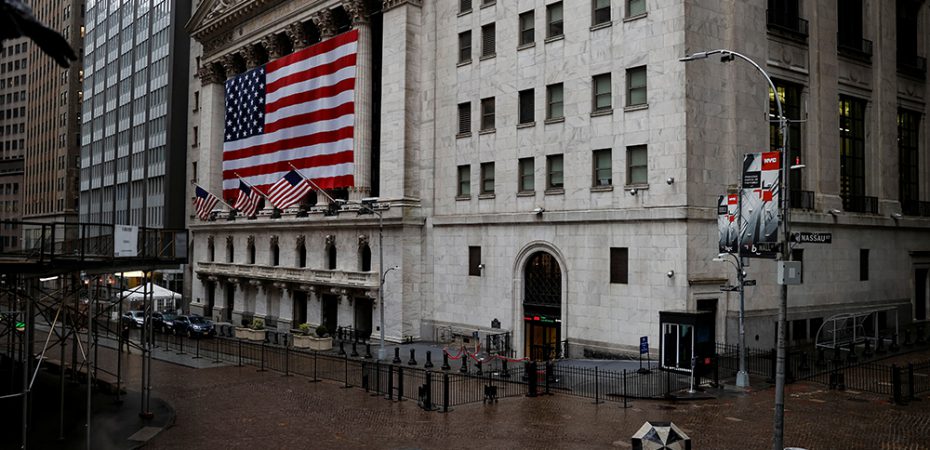Serving the Suffering Church: Planting Spiritual Victory Gardens
Ministering in a time of sickness and fear
Deacon William T. Ditewig Comments Off on Serving the Suffering Church: Planting Spiritual Victory Gardens
During the global wars of the 20th century people were encouraged to plant gardens in every available plot of land: from small window boxes in apartments to backyards and abandoned lots. Local authorities supported these efforts by offering advice on what items grew best in certain types of soil and how to protect these crops — even in the most modest of efforts — from disease and infestation. These gardens were quickly dubbed “war gardens” but even more popularly, “victory gardens.” They served two critically important functions: to augment dwindling food supplies in support of the war effort, but equally important to keep up morale during the long years of war, deprivation and fear. It seems to me that during this time of the coronavirus (COVID-19), we deacons could take a lesson from these victory gardens.
As of this writing, the majority of the Latin-rite and Eastern-rite dioceses of the United States (and many more internationally) have taken concrete steps to protect their parishioners: suspending public celebrations of the Eucharist, reducing or eliminating office hours and, in some places, even offering “drive-through” confessions. Normal venues of ministry are changing around us: jails and prisons have eliminated pastoral visits and religious services, hospitals have either placed exceptional restrictions on or in some cases eliminated visits from volunteers. For the foreseeable future there will be few normal venues of ministry. Ministry calls us to human solidarity just as COVID-19 demands isolation.
The diaconate, however, was renewed after the Second Vatican Council precisely to find and serve people’s needs in areas that weren’t being met by normal venues of ministry. As Pope St. John Paul II reminded us, “A deeply felt need in the decision to re-establish the permanent diaconate was and is that of a greater and more direct presence of Church ministers in the various spheres of the family, work, school, etc., in addition to existing pastoral structures.”
During World War I and World War II ordinary people — teachers, salespeople, taxi drivers, religious sisters, factory workers — found fertile ground wherever they could to plant seeds to feed themselves and others. We deacons are now perfectly positioned to carry out St. John Paul’s mandate that we find fertile ground for ministry “in addition to existing pastoral structures.”
The existing structures are certainly the place to start. For those of us who are able to be online, we have seen stories of pastors, deacons and parish staffs creating new forms of ministry that protect people’s health while still offering ministry. For example, one priest set up a station for confessions in the church parking lot. He sat under an awning. A seminarian from the parish, now home from school because of the virus, helped direct cars to the pastor, signaling him whether the person in the car wanted to confess face-to-face or anonymously. If anonymous, the priest actually donned an eye cover! Just a few months ago, such an idea might have been seen as a joke; but now we see that, as unusual as it is, people are still able to take advantage of the Sacrament of Reconciliation.
Other churches are offering Masses celebrated by a single priest with no assembly present, which are being livestreamed to parishioners. We have had Rosaries, Liturgy of the Hours, and other prayer services done similarly. Certainly, deacons are, and should continue to be, participants in these efforts. While we temporarily cannot celebrate the Eucharist together, perhaps we can help our parishioners grow from this Lenten Eucharistic fast, assisting them in acts of spiritual communion.
But where is other fertile ground for our spiritual victory gardens? And remember the twofold purpose of those gardens: to augment our fruitfulness and to raise morale.
The pope enumerated “family, work, school” as venues of diaconal ministry. As we hunker down in our homes with our families, we can minister to them directly, by helping everyone at home stay occupied, support one another, help those who might not be well and keep morale high: We will get through all of this together.
It looks like work and school will not be normal venues for us any time soon, and that adds additional stress on the home, with kids out of school and parents working from home. How can we help set up new schedules that reflect the additional demands being placed on people by trying to use the home for everything? There may need to be creative approaches to sharing limited resources along with the increased tensions caused by fear of the virus, along with working and studying in unusual environments?
Finally, at home, how might we find ways to pray? It is important to keep God at the heart of our lives, especially in such a time of disruption, fear and confusion.
There are other places of fertile ground for our efforts. For example, many of the ideas being floated involve the use of technology. However, many of those most in need are not online, and perhaps they do not own a computer or a smartphone. They are at home, often alone and trying to get by as best they can. They cannot benefit from livestreamed Masses and other services.
One of the terrible side effects of the current situation is the isolation faced by so many. Perhaps deacons could spearhead a phone-tree effort, in which clergy, staff and volunteers reach out by phone to everyone in the parish to visit and pray with them on a regular basis.
It is important for us to model safe practices and not convey that one’s spirituality will somehow render us immune from the virus. Remember, even though we are willing to risk our lives for others, the nature of this virus is such that we might not only be putting our own health at risk, we also put others at risk if we don’t follow the health and safety guidelines established for the safety of all.
So, keeping all such health and safety practices in mind, it could be that at some point we might be able to visit one-on-one with some of our remote or otherwise isolated parishioners. I want to stress that this is done only if it can be done so in accordance with the healthcare standards established by local, state and federal government agencies.
We deacons have another major source of fertile ground: our expertise in secular jobs and professions. Whether still active in those jobs or retired from them, we can still make use of the skills we have gained to help others. I was serving at the USCCB when Hurricanes Katrina and Rita devastated so much of the Gulf Coast and neighboring areas. Within hours, I received dozens of phone calls from deacons who wanted to help in some way. To a man, they would say things like, “I’m a healthcare professional, and I can put together a rapid response team. Where should we go?” We had calls from deacon-insurance agents, deacon-lawyers, deacon-public health officials, deacon-construction experts, and so on.
Where is that fertile ground for each of us right now? Are there ways that we can use these secular skills in the current crisis? While, of course, the demands of social separation and the spread of this virus are quite distinct from the kinds of needs faced after the hurricanes, still, it remains a particularly appropriate question for us deacons: How might my professional skills be coupled with ministry to serve the needs of others?
The bottom line here is that our spiritual victory gardens need to be just as creative as our grandparents’ and great-grandparents’ own gardens. It is easy to say that we don’t have access to fertile ground, but even a little bit can have significant results. Remember that some of our ancestors used small window boxes in their apartments as gardens and there were probably more of those small “victory gardens” than those planted in large plots of land.
Our challenge is to look around with the eyes of a deacon. We must look outside our normal “existing pastoral structures” and meet the needs of others where we encounter them in our particular circumstances. It seems to me that the most important things we can provide are a sense of connectedness, spiritual communion and hope.
DEACON WILLIAM T. DITEWIG, Ph.D., is a deacon of the Archdiocese of Washington, a retired Navy commander and past executive director of the Secretariat for the Diaconate at the U.S. Conference of Catholic Bishops.





